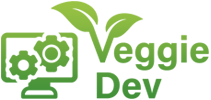Animal Agriculture: Human Nature?
Animal Agriculture
The last and probably most important step for me was to change my diet. Now I know this is a controversial subject but it’s one that needs to be addressed; animal agriculture is the leading cause of deforestation, habitat loss, species extinction, fresh water usage and ocean dead zones. This is not propaganda, but evidence based on research backed by many scientists and organisations.
Here are some shocking figures (sources are stated here):
- Animal agriculture is responsible for 18 percent of greenhouse gas emissions, more than the combined exhaust from all transportation combined
- Animal agriculture water consumption ranges from 34-76 trillion gallons annually.
- 2,500 gallons of water are needed to produce 1 pound of beef.
- 477 gallons of water are required to produce 1lb. of eggs; almost 900 gallons of water are needed for 1lb. of cheese.
- 1,000 gallons of water are required to produce 1 gallon of milk.
- Livestock covers 45% of the earth’s total land.
- A farm with 2,500 dairy cows produces the same amount of waste as a city of 411,000 people.
- As many as 40% (63 billion pounds) of fish caught globally every year are discarded.
- Up to 137 plant, animal and insect species are lost every day due to rainforest destruction for livestock and feedcrops
- 82% of starving children live in countries where food is fed to animals, and the animals are eaten by western countries.
It was immediately obvious to me what I had to do, and in August 2018 I removed all meat from my diet. At the start of 2019, I took part in Veganuary, which helped me realise that veganism wasn’t the big scary and restrictive diet I had always thought it was. With the support of my Dad (who was already following a whole food plant-based diet) and my boyfriend (who also wanted to adopt a plant-based diet), I jumped ships July this year and stopped consuming any animal products.
Although my main reasons for cutting out animal products were the environmental factors, I also found myself asking if I really thought it was ethical to harm or kill another animal for my own comfort, be it for clothing, makeup or other products. The answer was no, and so a vegan was born!
So what are the different diets and what do they mean?
- Omnivore – someone who eats a mix of plants and animal products (including meat and dairy)
- Vegetarian – someone who does not eat meat but will eat animal products (such as eggs and dairy)
- Whole Food Plant-based – someone whose diet consists of only whole foods derived from plants such as whole grains, fruits, vegetables, nuts and seeds (this is usually for health reasons)
- Vegan – someone who does not consume any animal products and will not buy, use or wear anything tested on animals or made with animal products (veganism is considered more of a lifestyle rather than a diet)
Since becoming vegan 5 months ago I have greatly reduced my carbon footprint and I’ve used a handy calculator to work out that I have saved approximately 624,585 Litres of water, 2,715 kgs of grain, 420 square metres of forest, 1,365 kg of CO2 and 150 animal lives.
If you’d like to learn more about how animal agriculture is affecting the planet then Cowspiracy (as mentioned above) is a great place to start. If you’re more interested in a plant-based diet for health reasons then I would recommend What the Health and The Game Changers, which are available on Netflix.
